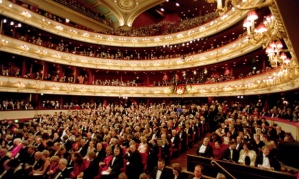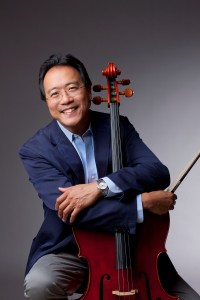“Music has always been transnational; people pick up whatever interests them, and certainly a lot of classical music has absorbed influences from all over the world”
Yo-Yo Ma (Inspirational Stories)
The newspaper article ‘Class, race and classical musical’ written by Candace Allen for the Guardian in April 2014.
‘The White Sea’ photo credits John Stiwell
It has been suggested that the word “creativity” has changed considerably over many years (Hausman, 1998; Negus and Pickering, 2000); whilst this might be true, the above article questions whether creativity in practice has seen as much change. The article touches on how historically ‘serious musicians of colour went into jazz and later pop’ and indeed this seems to be somewhat true of modern day society. Edensor and Millington (2009: 104) comment on Christmas Lights being a reflection on one’s creativity and in-turn class with those from a middle-class background having distinctly different displays to those from a working class. It is evident that debates surrounding class and the creative economy stem far wider than just classical music.
Bromley (2000: 51) comments more widely on class in the UK stating how it is now ‘a ghost in the machine of contemporary British politics, the great “unspoken” ‘. People don’t want to talk about it. People don’t want to accept it.
But it’s happening.
Whilst my previous blog posts have been more positive about the creative economy, the negative side of this industry is highlighted in this article. The fact remains that still today in modern society, some are excluded from such opportunities to develop their own individual ‘vernacular creativity’. Indeed and in my opinion unfortunately this view is also shared and agreed with by academics; Edensor et al. (2009: 7) states that ‘the most uncreative class here seems to be the abject working class’. Sure, in an ideal world class, race and a person’s background wouldn’t matter. But evidently it does. Perhaps it is not so much a problem with classical music being considered a ‘middle-class’ interest, but instead it is portrayed as being un-cool by people of a lower class; these ideas (mentioned in the article) have been explored by Hannigan, 1999 (cited in Edensor et al. 2009).
International Star Yo-Yo Ma
There are however exceptions to this seen ‘norm’. Yo-Yo Ma is an internationally renowned cellist. Born to Chinese parents in Paris and later moving to New York, music has been a part of his life since he was just 4 years old; more interesting however is his contribution to the creative economy beyond his career. As stated on his website Mr. Ma is ‘strongly committed to educational programmes that not only bring young audiences into contact with music but also allow them to participate in its creation’. I think this is a perfect example of what Allen is suggesting in her article in that education could be the primary root for music within an individual’s life. So yes Yo-Yo Ma is seemingly breaking away from the tradition of the white-middle class indulging in classical music; hopefully one day class won’t need to be discussed or considered when seeking to engage with the creative world.
References
Bromley, R. (2000) ‘The Theme That Dare Not Speak Its Name: Class and Recent British Film’, in S. Munt (ed.) Cultural Studies and the Working Class: Subject to Change, pp. 51–68. London: Cassell.
Edensor, T., & Millington, S. (2009). Illuminations, class identities and the contested landscapes of Christmas. Sociology, 43(1), 103-121.
Edensor, T., Leslie, D., Millington, S., & Rantisi, N. (Eds.). (2009). Spaces of vernacular creativity: rethinking the cultural economy. Routledge.
HAUSMAN, C. (1998) ‘Creativity: Conceptual and historical overview’, in Encyclopedia of Aesthetics, ed. M. Kelly, Oxford University Press, Oxford.
Inspirational Stories http://www.inspirationalstories.com/quotes/t/yo-yo-ma/%20 (last accessed on 20.03.2015)
NEGUS, K. & PICKERING, M. (2000) ‘Creativity and cultural production’, International Journal of Cultural Policy, vol. 6, no. 2, pp. 259–282.
Related Links
http://www.theguardian.com/music/musicblog/2014/apr/04/class-race-and-classical-music-candace-allen
http://www.theguardian.com/music/tomserviceblog/2014/apr/16/class-race-classical-music-debate
http://www.floridaorchestra.org/general.asp?id=208
http://www.yo-yoma.com/yo-yo-ma-biography

